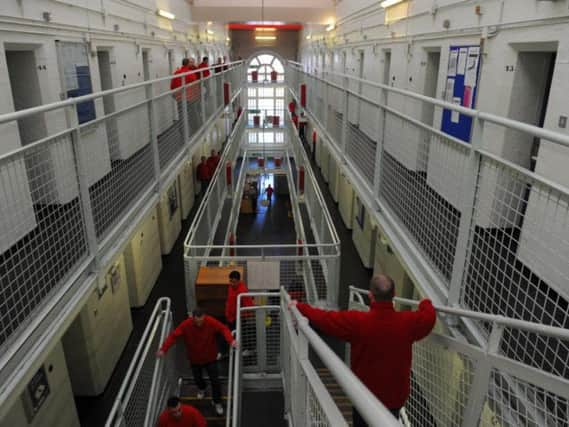Figures show Scots prisoners doing less work in jail


The latest figures from the Scottish Prison Service show the number of hours spent on so-called “purposeful activity” has declined and are now at their lowest level since 2011.
The fall was accompanied by a drop in the number of vocational courses completed in prison.
Advertisement
Hide AdAdvertisement
Hide AdThe Scottish Conservatives described the trend as “unacceptable”. Purposeful activity is defined as any supervised or structured activity which contributes to reducing re-offending.
It includes time spent on work or work-related education that could lead to a job when the prisoner gets out of jail. Also included is vocational training and “positive prison-based activities” such as physical education or spiritual and pastoral care.
The figures showed 6,500,272 hours of purposeful activity were carried out in 2017/18, a fall from 6,785,800 the previous year. Scotland’s prison population currently stands at 7,464.
The 2017/18 figures are the lowest level since the measure was first introduced in 2010-11 and the third consecutive fall in hours since 2014-15.
Average hours of activity per week per prisoner has also fallen since 2016, to 21 from 22, the joint-lowest level since the measure was first introduced in 2011/12.
When it came to vocational qualifications completed in prison, the most recent figures detected a decrease – reversing the positive trend of the last few years.
When 2018/19 was compared with the previous year, there was a seven per cent decline from 20,311 in 2016-17 to 18,793 in 2018-19.
Shadow justice secretary Liam Kerr said: “This continuing decline in work and education in Scotland’s prisons is totally unacceptable. Evidence shows that meaningful activity in prison is crucial for prisoner rehabilitation and reintegration into society upon release.
Advertisement
Hide AdAdvertisement
Hide Ad“Therefore, every prisoner should be compelled to either work or take part in some kind of meaningful activity while they’re in jail. Instead of putting dangerous criminals straight back into society, it would be more constructive to take the opportunity presented by incarceration to give prisoners a genuine opportunity to rehabilitate, retrain, re-educate and re-qualify.”
A Scottish Prison Service spokesman said: “The appointment of a single contactor to provide education across Scotland, which has brought about changes in practices and personnel. Leading to an anticipated but temporary, performance dip in some areas.”